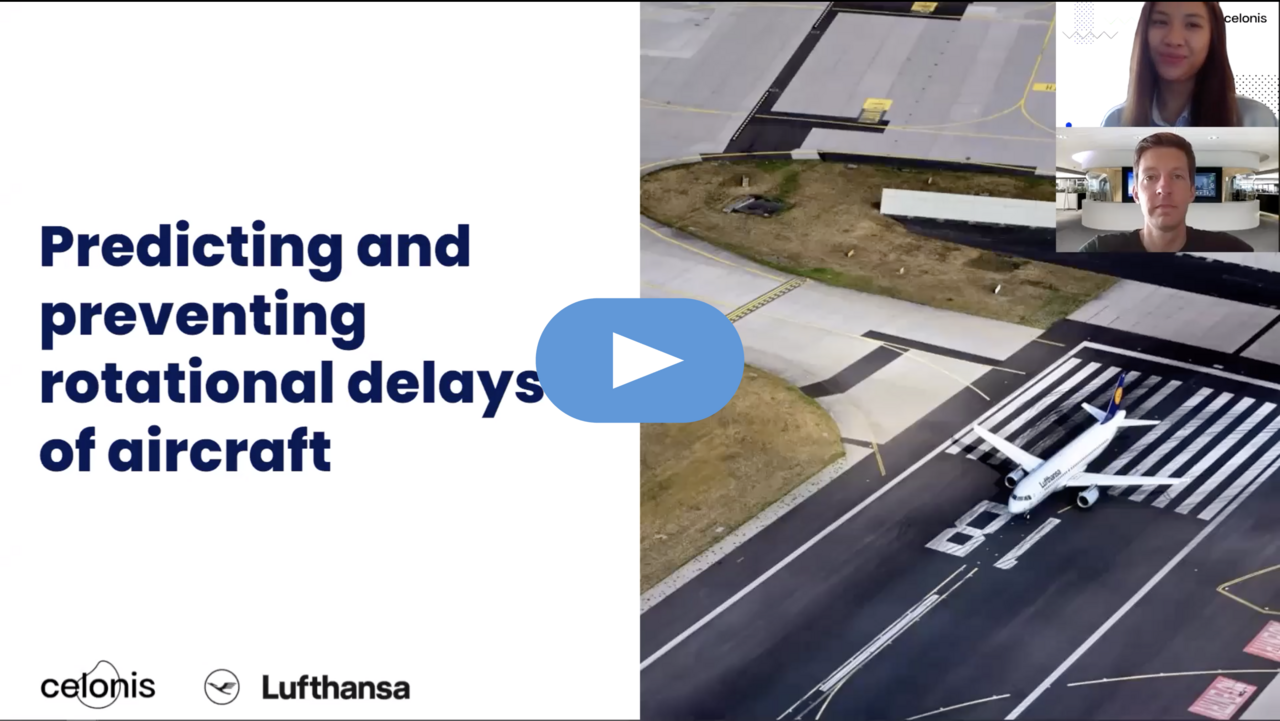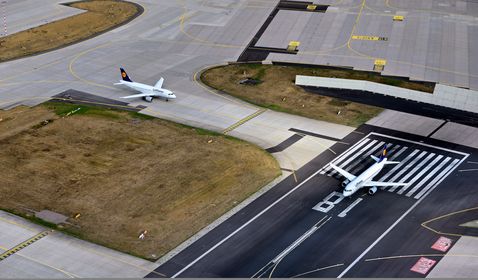Predicting and preventing rotational delays of aircraft
This project took place in winter term 2021, you CAN NOT apply to this project anymore!
Results of this project are explained in detail in the final report and presentation.
- Sponsored by: Lufthansa Airlines & Celonis
- Project Lead: Dr. Ricardo Acevedo Cabra
- Scientific Lead: Ngoc Anh Ngo (Celonis) & Jorin Bonney (Lufthansa)
- TUM Co-Mentor: Dr. Ricardo Acevedo Cabra
- Term: Winter semester 2021
About Lufthansa & Celonis
Lufthansa Airlines is part of Lufthansa Group, Europe’s largest airline group. Lufthansa carried 71,3 million passengers in 2019 operating more than 300 planes.
Celonis is the pioneer for Process Mining technology and global market leader in Execution Management. The Celonis Execution Management System provides companies a modern way to run their business processes entirely on data and intelligence.
About the project
Aircraft are one the most expensive assets for an airline, therefore aircraft productivity (blockhours/day) has to be as high as possible. Due to the tight schedule and connecting passenger streams, the delay of one flight has effects on the punctuality of many other flights. There is a high number of influencing variables on the punctuality of a flight (ground processes, airport congestion, airspace congestion, …).
Lufthansa steadily increased the knowledge about these influencing variables in the past years and has created a digital ops twin in Celonis EMS. The digital ops twin:
-
Consists of up to 80 timestamps per flight
-
Connects all the timestamps to process twins based on the unique identifier “Flight-# + Date + Aircraft Tailsign”
-
Is updated once a day
The goal of this project is to further develop the digital twin from post-flight root-cause analyses for delays to predict rotational delays and prevent them.
Currently, the digital twin mainly consists of data points describing the “turnaround” process from landing of one flight to the take-off of the next flight. This has to be extended to also model all factors influencing flight-time. In the next step, a predictive model for rotational delays will be designed, validated and implemented within the Celonis Machine Learning Workbench. Finally, a skill in Celonis EMS will be developed that automatically notifies the Ops Steering Department of potential aircraft rotational delays and proposes initial countermeasures.
Accepted students to this project should attend (unless they have proven knowledge) online workshops at the LRZ from 11.10. - 15.10.2021. More information will be provided to students accepted to this project.

